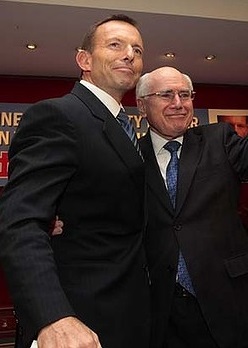Audit causes alarm, but no commitment just yet
 Speculation abounds as to what will fall under the intense probing of the upcoming Commission of Audit, with still no solid word from the Government.
Speculation abounds as to what will fall under the intense probing of the upcoming Commission of Audit, with still no solid word from the Government.
There has been outcry across the country at mere suggestions which appeared in a Western Australian newspaper article, as many wait to see where the business-friendly government will look to make changes – possibly through the sale of public assets.
In the lead-up to the election this September just passed, Prime Minister Tony Abbott reported on numerous occasions that the country was facing a “budget emergency” and that drastic moves would be undertaken to rescue it from driving off a fiscal cliff.
Mr Abbott appears to have changed gears on that point, but a scheduled Commission of Audit will still go ahead, and many believe it will generate several significant recommendations to make the nation more money.
It does appear almost certain that publicly owned health insurer Medibank Private will be sold. The insurer made about $200 million profit last year and is expected to fetch about $4.5 billion from its sale.
Snowy Hydro has been flagged as a possibility, as has the loss-making Australian Rail Track Corporation, which manages and maintains Australia's bulk rail corridors.
Among the ideas previously suggested by politicians and members of the academic community is the notion of bundling the HECS debt of some 1.6 million former students into a saleable commodity, which would then be sold to investors.
The suggestion by the newspaper report has ignited outrage from many currently trying to pay their debts.
Currently the nations’ HECS bill sits at about $22.6 billion, and debtors are only required to begin paying when their annual salary rises above $51,309
Some commentors have doused the idea that a private debt-holders would seek to leverage interest rates to recoup the money more rapidly.
The more likely plan of action, according to some sources, would be for the debt to be sold for less than its face value and for the buyers to make profit over the natural course of repayments.
It is unclear what rights a private group would have to modify the existing terms and conditions, with the debt currently indexed against CPI.
There are very few details at all about what will be audited by the Commission, other claims include the possibility of privatising the national postal service AusPost. Recently the British Government listed its Royal Mail service on the London Stock Exchange hoping to improve the British Budget by £2 billion.
Tony Abbott has largely refused to comment on the specifics of the Audit, saying in September: “I'm very happy to have the Commission of Audit go through the whole of the administration, to tell us whether, in their opinion, they think things can be done better.”
“Where we can do government better, it would be silly of us not to... but we won't do anything that's inconsistent with our mandate, we won't do anything that's a breach of faith with the public,” Abbott said.
In response, Labor Senator Penny Wong said: “Everything is on the table. Everything is on the table. Everything is on the table: Health, education, pensions, family payments, everything is on the table and nothing is quarantined.”
The last Commonwealth Commission of Audit was established by the incoming Howard government in 1996.
Treasurer Joe Hockey is expected to announce the firm details of the services the Commission will investigate sometime in the next few weeks.







 Print
Print